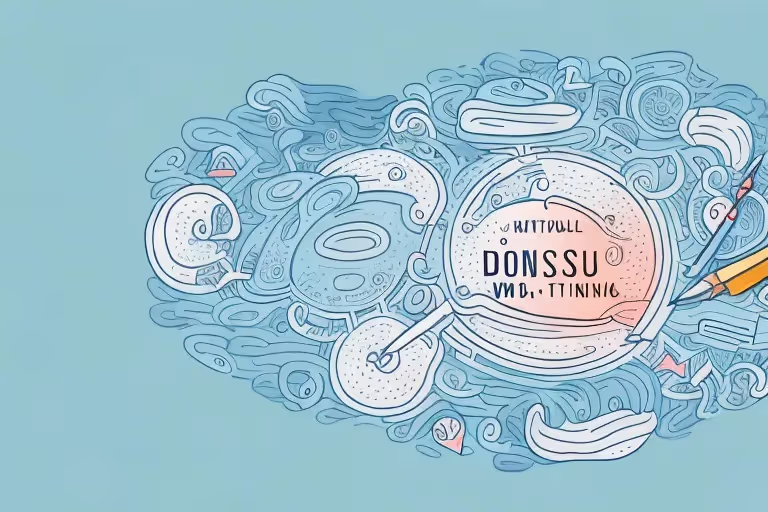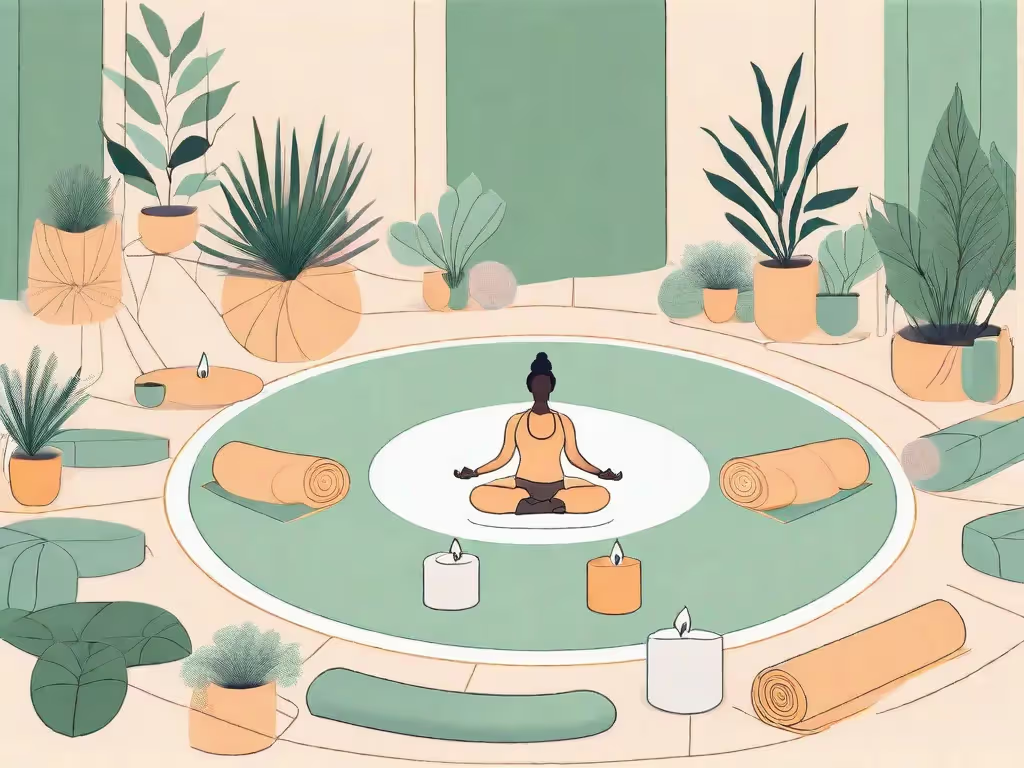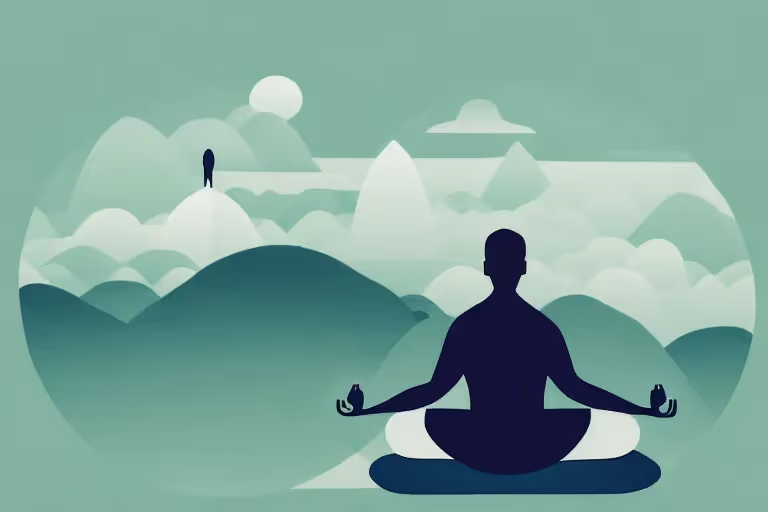Are you someone who lies awake at night, staring at the ceiling and counting sheep in a futile attempt to fall asleep? If so, you're not alone. Insomnia is a common sleep disorder that affects millions of people worldwide. But have you ever wondered if there is a genetic component to this frustrating condition? In this article, we will delve into the fascinating world of insomnia and explore the role that genetics may play in its development. So, grab a cup of chamomile tea and let's dive in!
Understanding Insomnia
Before we can explore the genetic link to insomnia, let's first understand what this sleep disorder entails. Insomnia is characterized by difficulty falling asleep, staying asleep, or both. Individuals with insomnia often experience daytime fatigue, mood disturbances, and impaired cognitive function. It can be an acute condition, lasting a few nights, or a chronic condition, spanning weeks, months, or even years.
What is Insomnia?
Insomnia is not merely a lack of sleep. It is a complex condition that involves a disruption in the body's natural sleep-wake cycle. This disruption can be caused by a wide range of factors, including stress, anxiety, depression, medication, and even certain medical conditions. But what about genetics? Can our genes influence our susceptibility to insomnia?
Common Symptoms of Insomnia
Do you find yourself tossing and turning in bed, unable to drift off into dreamland? One of the most common symptoms of insomnia is difficulty falling asleep. However, that's not all. Insomnia can manifest itself in various other ways, such as waking up frequently during the night, waking up too early in the morning, and experiencing non-restorative sleep. Additionally, individuals with insomnia often struggle with daytime symptoms, including fatigue, irritability, difficulty concentrating, and decreased performance at work or school.
The Role of Genetics in Insomnia
Now that we've gained a better understanding of insomnia, let's explore the role that genetics may play in its development. But first, let's clarify what the term "genetic" actually means.
What Does Genetic Mean?
When we talk about something being genetic, we're referring to the influence of our genes on that particular trait or condition. Our genes are made up of DNA, and they contain the instructions for the development, functioning, and maintenance of our bodies. Genes can influence everything from our appearance to our susceptibility to certain diseases. So, is insomnia one of those conditions that can be influenced by our genetic makeup?
How Genetics Influence Insomnia
While the exact mechanisms by which genes influence insomnia are still being uncovered, research suggests that genetic factors may indeed play a role in the development of this sleep disorder. Studies have identified specific genes that are associated with sleep disturbances and insomnia. These genes are involved in regulating various aspects of the sleep-wake cycle, such as the production of certain neurotransmitters and hormones that are crucial for sleep regulation. However, it's essential to remember that genetics is just one piece of the puzzle. Environmental and lifestyle factors can also contribute to the development of insomnia.
Studies Supporting the Genetic Link to Insomnia
Curious to know more about the research supporting the genetic link to insomnia? Let's take a closer look at some key findings and intriguing case studies.
Key Research Findings
Several studies have provided evidence supporting the genetic component of insomnia. One study conducted on twins found that genetic factors accounted for approximately 35-55% of the variance in insomnia symptoms. This suggests that genetics plays a significant role in determining an individual's susceptibility to insomnia. Other studies have identified specific genes, such as PER2 and CLOCK, that are associated with sleep disturbances and insomnia.
Case Studies on Insomnia and Genetics
Case studies further highlight the genetic connection to insomnia. In one fascinating case, researchers discovered a family in which several members experienced persistent insomnia across multiple generations. Genetic analysis revealed a mutation in a gene related to sleep regulation, providing strong evidence for a genetic basis for their insomnia. These intriguing case studies reinforce the idea that genetics can influence an individual's susceptibility to insomnia.
Other Factors Contributing to Insomnia
While genetics may play a role in the development of insomnia, it's crucial to recognize that other factors can also contribute to this sleep disorder. Let's explore some of these factors in more detail.
Environmental Factors
Our environment can significantly impact our ability to sleep. Factors such as noise, light exposure, temperature, and an uncomfortable mattress or pillow can disrupt our sleep and contribute to insomnia. Creating a sleep-friendly environment, with a cool and dark bedroom, can help promote better sleep.
Lifestyle Factors
Our lifestyle choices can also affect our sleep quality. Certain habits, such as consuming caffeine or alcohol close to bedtime, irregular sleep schedules, and excessive screen time before bed, can interfere with our ability to fall asleep. Incorporating healthy sleep habits, like establishing a consistent sleep schedule and practicing relaxation techniques, can greatly improve our sleep.
Medical Conditions and Insomnia
Underlying medical conditions, such as chronic pain, respiratory disorders, and psychiatric disorders like depression and anxiety, can contribute to insomnia. Treating these underlying conditions can help alleviate sleep disturbances and improve sleep quality.
Treatment Options for Insomnia
Now that we have explored the factors contributing to insomnia, let's shift our focus to the treatment options available for managing this sleep disorder.
Medical Treatments
In some cases, medical interventions may be necessary to address insomnia. These can include prescription sleep medications, which should be used under the guidance of a healthcare professional, as well as cognitive-behavioral therapy for insomnia (CBT-I). CBT-I is a non-drug treatment that focuses on addressing the underlying causes of insomnia and teaching individuals effective sleep strategies.
Natural Remedies
If you prefer a more natural approach, several lifestyle changes and alternative therapies can help improve your sleep. These include establishing a relaxing bedtime routine, incorporating regular exercise into your day, practicing relaxation techniques like meditation or deep breathing, and utilizing natural sleep aids such as melatonin or herbal supplements like valerian root.
Lifestyle Changes
Sometimes, simple lifestyle modifications can have a profound impact on our sleep quality. Avoiding stimulants like caffeine and nicotine, creating a calm and comfortable sleep environment, maintaining a consistent sleep-wake schedule, and managing stress levels can significantly improve our ability to fall asleep and stay asleep.
It's important to remember that finding the right treatment for insomnia may require some trial and error. What works for one person may not work for another. If you're struggling with insomnia, it's best to consult with a healthcare professional who can guide you towards the most appropriate treatment approach for your specific situation.
So, is insomnia genetic? While the research suggests that genetics may indeed contribute to the development of this sleep disorder, it's important to remember that insomnia is a complex condition influenced by various factors. Understanding the interplay between genetics, environment, and lifestyle can empower us to make the necessary changes to improve our sleep quality.
Looking for a holistic approach to managing insomnia and improving your overall well-being? Consider trying the Aura Health App. With a wide range of meditation and relaxation exercises, sleep stories, and mood-tracking features, Aura can help you establish healthier sleep habits and achieve a deeper, more restorative slumber. Say goodbye to restless nights and unlock the power of a good night's sleep with Aura!
Aura is Your All In One App for Meditation, Mindfulness Wellbeing
Find peace every day with one app for your whole well-being. There is no one-size-fits-all solution to mental well-being. Aura is the first all-in-one wellness app that learns how to best help you. Discover an endless library of expert-created tracks for your well-being, all taught by the world’s best coaches, therapists, and storytellers. With Aura's personalized recommendations, you can find peace every morning, day and night.



.webp)






.avif)

%20(1).avif)


.avif)
.avif)
.webp)


.avif)


















































































































.avif)

















.svg)









